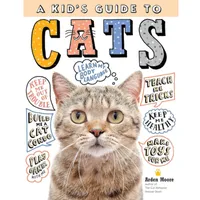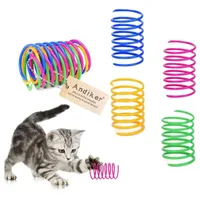Should I get a kitten for Christmas?
The holidays are a time for joy and gifts — but should a kitten for Christmas be one of them?
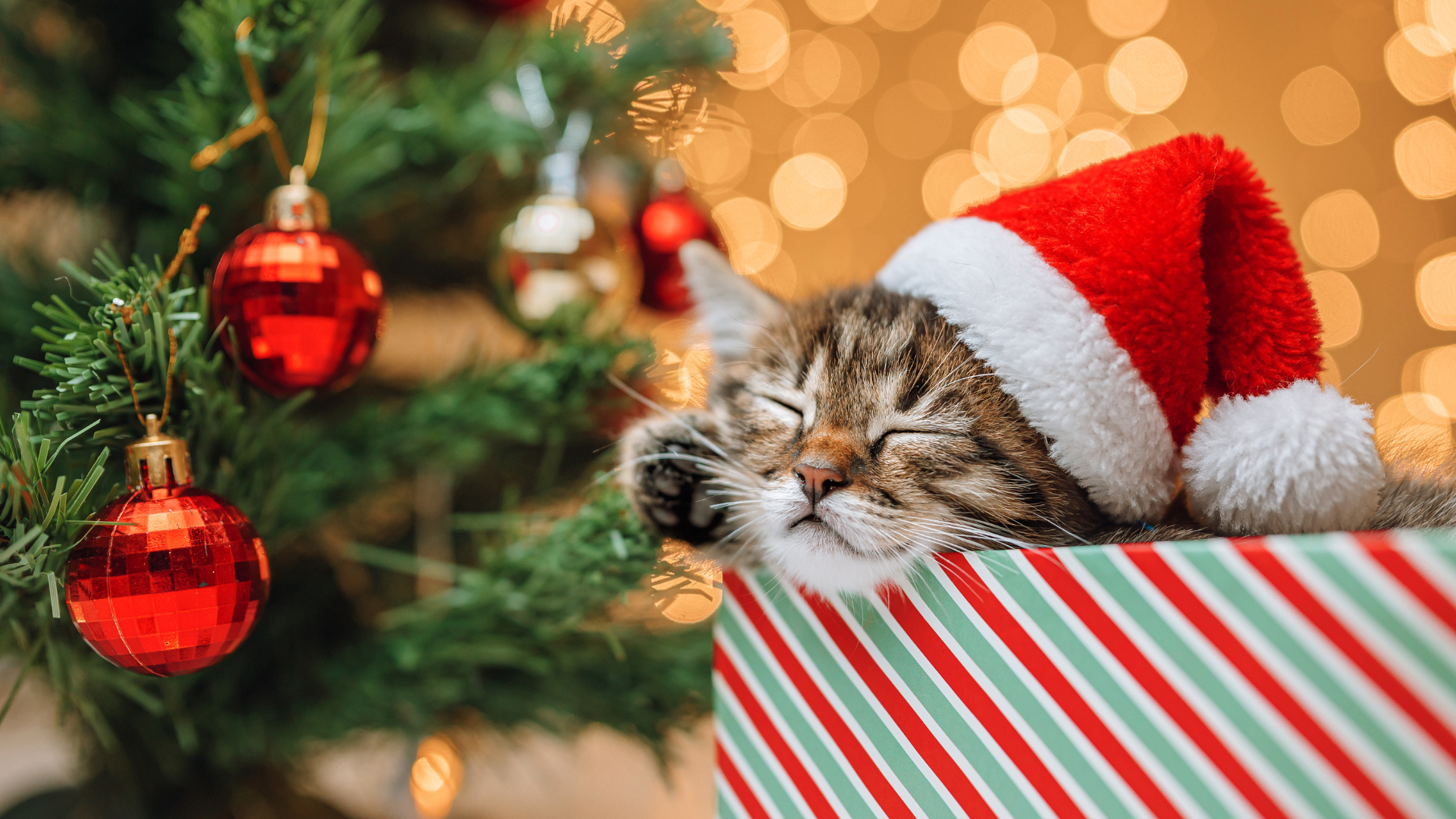
Deciding to get a new pet is a big decision, and introducing a kitten for Christmas might not be the best idea. The festive period brings about romantic and idyllic thoughts. It’s the time of giving, receiving, glitter, love, guilt-free snacking and new sofas.
Yet, as an advanced surgical veterinary nurse, author of multiple veterinary academic and pet care books as well as a feature pet writer, getting a kitten for Christmas is an all-too-common idea people parlay. It’s a question I’ve been asked many times throughout my veterinary and pet career. It makes sense, therefore, to lay out the practicalities of doing this. What are the ethics of getting a kitten for Christmas? What are the best things to implement if you decide to take the plunge?
If you have already planned your new arrival for the holiday season, or you already have a kitten, you'll want to give them the best kitten food. Feeding them a good diet should be a priority and will make all the difference to their general health, but let’s return to whether Christmas is the best time to purchase a feline friend in the first place.
Should I get a kitten for Christmas?
There’s no denying the charm of a kitten. Their adorable, playful nature and fluffy antics are enough to lift any spirit or household. They also provide good companionship, entertainment, and stress relief.
Despite their benefits, much awareness has been placed on the rightness and wrongness of getting a new kitten at Christmas. Here are some things you need to consider before making your final decision:
1. Commitment
Cuteness aside, it's crucial to remember kittens grow into adult cats. These larger felines have average lifespans of 14-20 years, and they require plenty of care, attention and money throughout that timeframe. Your commitment to your new pet therefore extends far beyond the holidays. Are you all in? All potential owners must be prepared for the responsibility of caring for their cat for its entire life. If you are in doubt about this, even a little – don’t do it. Wait until a better time.
2. Financial responsibility
Owning a cat involves ongoing expenses … daily, monthly, and yearly. These include food, litter, the best cat toys, scratching posts, and regular veterinary care. There may also be unexpected medical and boarding costs. It's important to factor these expenses into your budget before deciding to add a kitten to your household. Keep in mind the rising costs of living, food, and bills too. Many cats end up in shelters and rescues due to financial restraints and changes in income.
Get the best advice, tips and top tech for your beloved Pets
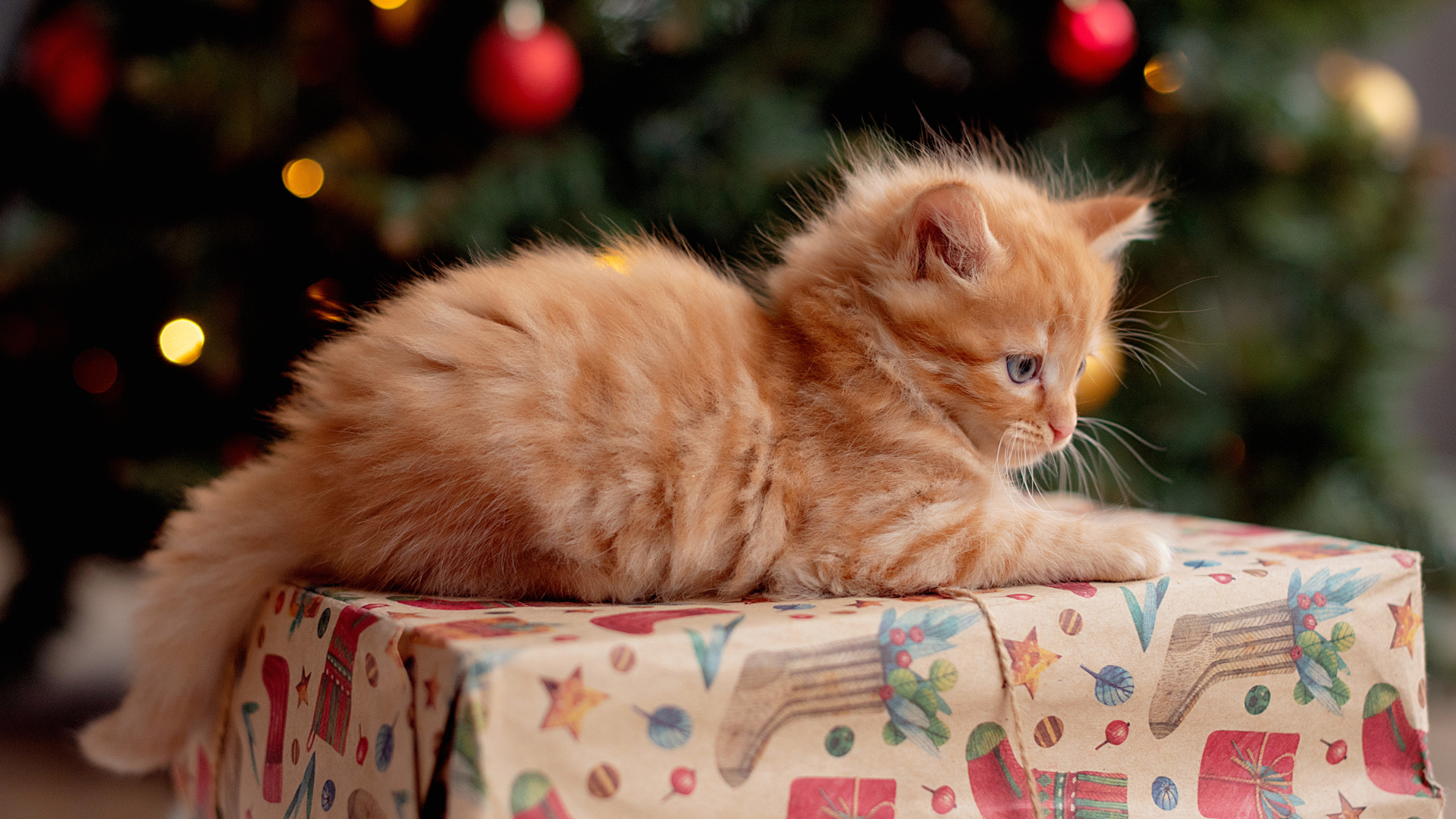
3. Time and attention
Kittens require significant time and attention, especially in their early months. They need play, socialization, health care, and training to become well-rounded and well-behaved adult cats. The busy holiday season may not be the ideal time to provide this vital care and attention, as often your time and mind can be elsewhere during this period.
4. Environment
Consider whether your home is suitable for a kitten. Do you have safe and interesting spaces for your kitten to explore? Are there any hazards that need to be addressed; balconies or toxic plants, for example? Is your home kitten-proof, or can it be adapted to make it so? Are they able to go outdoors? If you have other pets or young children, how will a new kitten affect this dynamic? Take time to research and mull over these considerations for your individual situation and needs. Here are 32 ways to kitten proof your home.
5. Stress and busyness
The holiday season can be chaotic and exceptionally busy. With decorations, visitors, and changes to normal routine, it can give a false impression of what life will be like going forward. This stressful, or even overly cozy period, may not be the most realistic environment for a kitten to try and acclimatize to its new home. A calmer and more normal time might be more suitable for introducing them into your house and life.
Alternatives you may want to consider
If you are still set on the idea of a Christmas kitty but unsure about the timing, consider these alternatives, all of which are great ideas until the real thing comes along.
- Gift a kitten starter kit to a cat charity, promising to adopt them in the new year when life is calmer
- Donate to a local cat charity or cat rescue
- Volunteer at your feline rescue or cattery to spend time with kittens and adult cats. This is fun, heart-warming, rewarding and allows you to assess your readiness for cat ownership
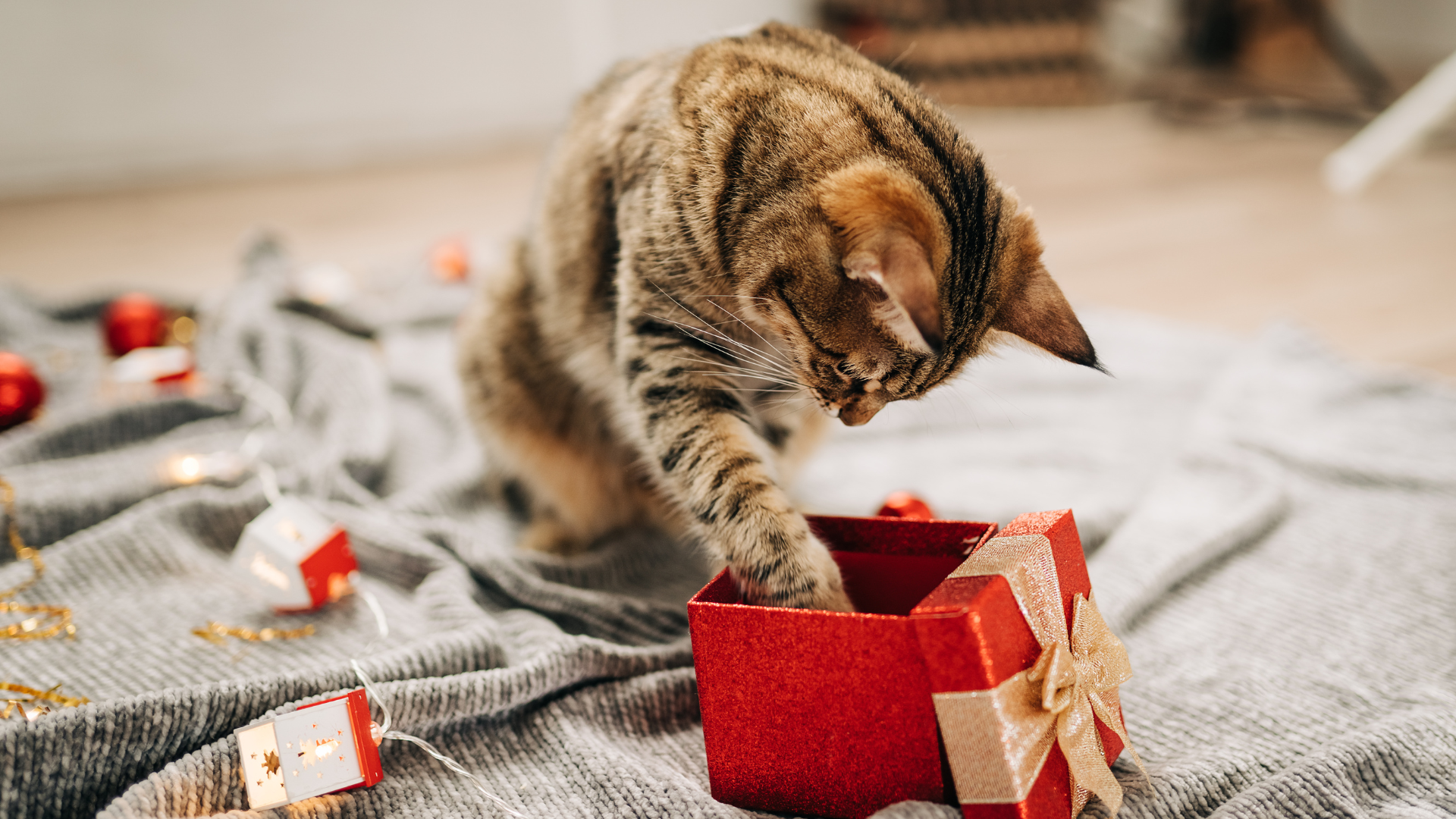
How to give a kitten as a Christmas gift
We all like to give presents. It brings happiness, but gifting a kitten, especially at Christmas, is not advised. Albeit there are circumstances where this may not apply,
Dr. Samantha Gaines, Head of the RSPCA's Companion Animals Department, said: "Pets can be an amazing addition to our lives, but we'd never advise anyone to buy an animal for someone else as a gift. Taking on an animal should be really carefully considered by the person who is going to be responsible for them, so they can be absolutely certain they're going to be able to provide that animal with the time, knowledge, and finances to look after him or her.
"There's a huge amount to consider from whether you have the time to dedicate to a pet, to the associated costs such as food, pet insurance, toys and bedding, grooming costs, vaccinations, parasite treatment, cattery, kennel or dog sitting costs and much more.
"We're experiencing a rehoming crisis - with more animals coming into our care and staying in rescue centers for longer, but fewer people are coming forward to adopt. The current cost of living crisis is engulfing the nation and vulnerable animals risk being overlooked. Calls to the RSPCA about abandonment and neglect have also risen, as more people struggle to afford to care for them.
"For these reasons, we'd always recommend to those who are in a position to welcome a pet into their lives, to rehome a rescue animal. When people adopt, and not shop, they give an animal in need a much-needed second chance, while also freeing up space in a shelter for another animal to get the care they urgently need.
"All the animals who are currently available for adoption are on the RSPCA's website. You can also help us and Join the Christmas Rescue so together we can help bring joy and safety to thousands of animals in desperate need this festive season."
However, working on the assumption the gift of a kitten to a loved one is wanted and well-organized, the following dos and don‘ts will help you do this responsibly.
DO:
- Get the kitten vaccinated: Whilst the first and (dependent on their age) second part of the vaccines will have been given by the breeder or rescue center before you collect them, you must ensure the kitten’s vaccines and worming programs are up-to-date and ensure the new owner knows the protocol henceforth. This helps prevent troublesome parasites and nasty diseases causing potentially fatal illnesses.
- Obtain neutering information or offer to pay for it: Help prevent unwanted kittens and health complications by preparing the new owner to have their kitten neutered, or you may wish to pay for it as part of your gift. Incidentally, most rescue centers offer this as part of their package.
- Get approval from the recipient: Far too many kittens and cats end up rescued because they are not really wanted, or the new pet parent is not committed enough to owning a kitten but rather prefers the idea of it.
- Ensure the receiver has all the necessary attire: Offer support in gathering all the necessary accessories for the new kitten, before the kitty arrives. For example, bowls, the best cat litter box, litter, any medication, and veterinary appointments are marked on their calendar.
- Invest in cat care books: Give a cat care book as an extra gift. Consider buying age-appropriate books for any children, so all family members are involved and aware of the responsibilities.
- Be careful with decorations: Keep Christmas and New Year decorations out of reach of your new kitten. These inquisitive masters will likely be interested in them. Potentially, they can become entangled with them or eat them. Items like these can easily be swallowed and become lodged inside, creating a medical and surgical emergency.
A Kid's Guide to Cats
This children-friendly book has some excellent advice on how to train, care for, communicate with and play with a cat.
DON'T:
- Give the kitten as a surprise: The new owner needs to be fully aware and involved with the purchase. Giving a kitten as a surprise, however well intended, can backfire. Many pets end up in shelters a few weeks later due to the mismatch. Alternatively, the new pet becomes poorly looked after due to a lack of interest or funds.
- Pick out the kitten: Much like jewelry, a kitten is a personal choice. The receiver needs to feel resonance and a connection to their new pet. This helps ensure a good relationship and only the owner can feel and sense this. Let the new owner/owners pick out their kitten.
- Buy to ease loneliness: The festive period is not fun for everyone. Indeed, it can be a challenging time for many people. You may think you are being helpful by getting a kitten as a companion for your friend or family member, but are you? While cats assist with this, gifting one at a triggering point of the year is not a good idea. Wait until after Christmas and New Year and ensure the owner is receiving any other help and assistance they may need.
- Don’t ignore allergies, incompatibilities, local regulations or laws: Any allergies and sensitivities within a household and local regulations surrounding pet ownership, must be considered and not glazed over in the hope ‘it will be alright’. These factors can change a situation significantly and cause a preventable problem. Check your local pet laws.
- Don’t purchase on a whim: Getting a kitten as a gift for yourself or another needs to be thoroughly thought out.
Whenever you decide to get a kitten for yourself or another, we wish you the happiest times together and we are always here for you!
You might also want to read: How to be a good cat owner.
Feeding your pet good nutritious food is a delight and means less poop too. When quality proteins like chicken and tuna are used, it makes all the difference to your kitten’s health. Bon Appetit!
Keeping your kitten entertained and out of mischief needn’t be rocket science or complicated. These safe fun springs cover all the kitty action – swatting, chasing, biting and hunting.
Annaliese qualified as a veterinary nurse from Edinburgh and went on to attain a diploma in advanced veterinary nursing in surgery from London. Throughout this time, she worked in both small and mixed veterinary practices and gained head nurse status. Responsible for training other veterinary nurses she also ran the nursing department, nurse clinics, and patient care protocols.
She has looked after 1,000s of patients and owners and created new higher standard nursing regimes, whilst specializing in surgery and anesthesia. After being asked to co-author multiple veterinary nursing textbooks, Annaliese continued to write for further mainstream publications in the UK and USA and after twenty-plus years in both the veterinary and pet care professions, she hung up her scrub suit and now writes full-time.
